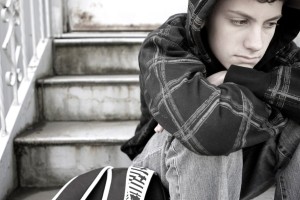Today, after over a month of debates surrounding the Justice for Victims of Trafficking Act (JVTA), members of the Senate announce a bi-partisan agreement. Thankfully, Senators from both sides of the aisle repeated calls for negotiations and persevered to find a creative solution. With the proposed amendment, critical protections for survivors contained in this important bill can proceed, including increased funding for victim services and prevention efforts and clarification that the offenders who drive the demand for sex trafficking victims are committing the crime of sex trafficking.
While the bill has received unwavering support from many advocates and survivors, recent controversies arose regarding the funding mechanism, particularly as it relates to application of the Hyde Amendment, which only allows federal funds to be used for abortions when the life of the mother is threatened or when the pregnancy is a result of rape or incest. The new agreement proposed by Senator Cornyn and Senator Reid was reached with bipartisan support and is expected to satisfy concerns on both sides of the debate. In this agreement no medical services will be provided through monies collected for the Domestic Trafficking Victims’ Fund, but instead these services will be provided through matched financing from another, recently created fund, established last week in the ‘doc fix’ bill. By adding matched funding, the proposed agreement will actually increase funds available for victim services and law enforcement training but will neither increase or decrease federal funding for abortions specifically, nor will it widen or restrict access to abortion. But, with respect to collecting and designating new funds towards restoration for survivors and prevention of human trafficking, the JVTA makes dramatic changes as it ushers in landmark advancements for anti-trafficking efforts.
The Justice for Victims of Trafficking Act accomplishes exactly what its name suggests, increased justice for victims. For 15 years now, advocates have rightfully and loudly criticized empty promises in the Trafficking Victims Protection Act of 2000 because its aspirational authorizations receive little or no funding. The JVTA offers a revolutionary solution to generating this desperately needed funding by levying significant fines on convicted perpetrators and funneling the income to victim services and prevention efforts. Programs need increased financial support to meet the needs of sex trafficking victims from investigations and identification to restoration. Survivors should be offered comprehensive services, such as medical treatment, shelter options, and counseling. Particularly, youth who have survived sex trafficking crimes are often in need of specialized services, including access to multidisciplinary services and residential placement options that are designed to help break trauma bonds. This bill also provides for direct services through Children’s Advocacy Centers for victims of child pornography. In addition to increased fines, the bill also facilitates asset forfeiture, the proceeds from which would have to be prioritized for victim restitution, because victims often never see the results of asset forfeiture.
Justice is better served through the victim-centered construct presented in the JVTA, which increases financial penalties for perpetrators by requiring payment for the harms they’ve inflicted, which would then help fund restoration for survivors and enable law enforcement entities to continue complex investigations.
The JVTA also clarifies that individuals are liable as participants in the crime of sex trafficking if they knowingly purchase sex from a trafficking victim or “in reckless disregard of the fact” that the other person is a sex trafficking victim. This provision echoes federal appellate case law interpreting the federal sex trafficking law as applicable to the acts of culpable buyers. This provision in the JVTA reflects wide support for focusing anti-trafficking efforts on demand.
The recent standoff has been threatening to abandon victims of human trafficking by neglecting to fund and secure needed services for restoration and justice systems. But, now is the time! The Senate must accept a bi-partisan agreement so that the JVTA’s groundbreaking improvements for increased, funded services for human trafficking survivors are not lost. We call members of the Senate to do now, what they just did with the ‘doc fix’ bill — that is consider and accept a bi-partisan solution.
Thankfully, the JVTA will likely not be the last bill to address victim services, but it makes key advancements that are needed right now. It will increase accountability for those who exploit sex trafficking victims. It will provide much needed, yet currently missing services for survivors.
To contact your Senator and encourage support for this bill, visit Shared Hope’s Legislative Action Center today and sign the letter.







